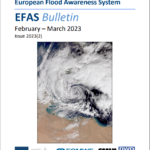In line with EU requirements, Member States have renewed their River Basin Management Plans under the Water Framework Directive and their Flood Risk Management Plans under the Floods
Directive last time in 2022. The available technologies and planning options are constantly evolving at international and national level. The management of areas currently affected by floods, droughts and inland waterways can only be addressed in a sustainable manner by a renewed focus on a complex water management approach. It is very important to note that the main problem today is no longer just the occasional water surplus, but the persistent water scarcity, which is causing increasing damage due to climate change and lack of rainfall events. To tackle this problem, we need to rethink the use and storage of water from inland waters and floods. One possible solution to the problem of water retention and storage, with a positive impact on the environment, is nature based water retention methods. Although grey solutions are widely used in territorial water management and have a long history of decades, there is also a need and potential for green infrastructure in specific locations that it is not as well developed, designed and managed as grey infrastructure does. In order to promote the use of green infrastructure, to make them more efficient and to facilitate their dissemination, the Ministry of Foreign Affairs and Trade of Hungary, in the context of the coordination of the EU Strategy of the Danube Region Environmental Risks Priority Area (hereafter: EUSDR PA5) has contributed to the activity undertaken in the framework of the DTP-PAC2-PA5 project (Activity. T2.3 “Cooperation with international organizations and EU institutes” Deliverable Title: D.T2.3.2 Study) a procurement was launched that fits in with the following objectives of the EUSDR PA5:
- Addressing water scarcity and drought challenges in line with the Danube River Basin Management Plan
- Provide ongoing technical support for the implementation of the Danube Flood Risk Management Plan adopted in 2015 in line with the EU Floods Directive to achieve a significant reduction of flood risks by 2021, taking into account the potential impacts of climate change and adaptation and adaptation strategies.
A specific structural tool to achieve the above objectives could be the use of green and natural infrastructure elements in addition to the conventional infrastructure flood protection and water management facilities. The EUSDR PA5 area has previously supported the implementation of the FRAMWAT, LIFE-MICACC and the LIFE LOGOS 4 WATERS, LIFE Sandboil projects currently under implementation in relation to nature-based solutions. In 2022 the “Nature-based solutions for flood risk reduction” was selected for one year as a Danube Strategy Flagship initiative of EUSDR PA5.
In the framework of the current project, an English-language study has been prepared based on the available literature and recent technical information, aiming at summarising the main basic knowledge related to the management of small watercourses in hilly areas, including the presentation of near-natural solutions for water retention and sediment trapping, with a special focus on transboundary impacts and partnerships. The study also covers the legislative environment and technical parameters related to these solutions especially for low hilly-hilly settlements. The completed study was presented in an international online workshop, where participants weregiven the opportunity to give their views and technical suggestions on the results. The main conclusions of the study are briefly presented below, together with the recommendations made at the workshop. The workshop was organized in online way on 26th October 2022 with the involvement of the Water Quality (PA4) and Biodiversity, Landscapes and Air & Soil Quality Priority Area (PA6) involvement. The EUSDR PA5’s new study, on “Supporting the advancement of nature-based solutions in the water management of hillside settlements” was presented by VIKÖTI Mérnöki Iroda Ltd. The Hungarian Chamber of Engineers presented the impact of the civil engineering and infrastructure planning of the nature-based solutions in the theme of water management. The Innovative water management methods at river basins by coordination of local governments within the LIFE LOGOS 4 WATERS project and needs of municipalities was presented by the Ministry of Interior of Hungary. It’s crucial to get financial support for that type of investment, on behalf of Grants Europe Consulting it was presented how can nature-based solutions be promoted by EU funds. Good project examples were also presented from different countries (17) like:
- Nature based solutions developed at the national and regional level developed within Danube floodplain and ROfloods projects (Romania)
- Framework for improving water balance and nutrient mitigation by applying small water retention measures, “FRAMWAT project” (Slovakia, Slovenia, Poland & Hungary)
- MERLIN”Mainstreaming Ecological Restoration of freshwater-related ecosystems in a Landscape context: INnovation, upscaling and transformation (Denmark, Spain, Sweden, Netherlands, Poland, Bosnia and Herzegovina, Austria, Hungary, Romania, Germany, Portugal, Finland, Israel, Belgium & Scotland, UK)
- Optimal Strategies to Retain Water and Nutrients “Optain” & Danube4All project Hungarian national communities (Hungarian TeAM HUb) on NBS were presented too, and from the Central-Eastern Europe as well, on behalf of GWP.



